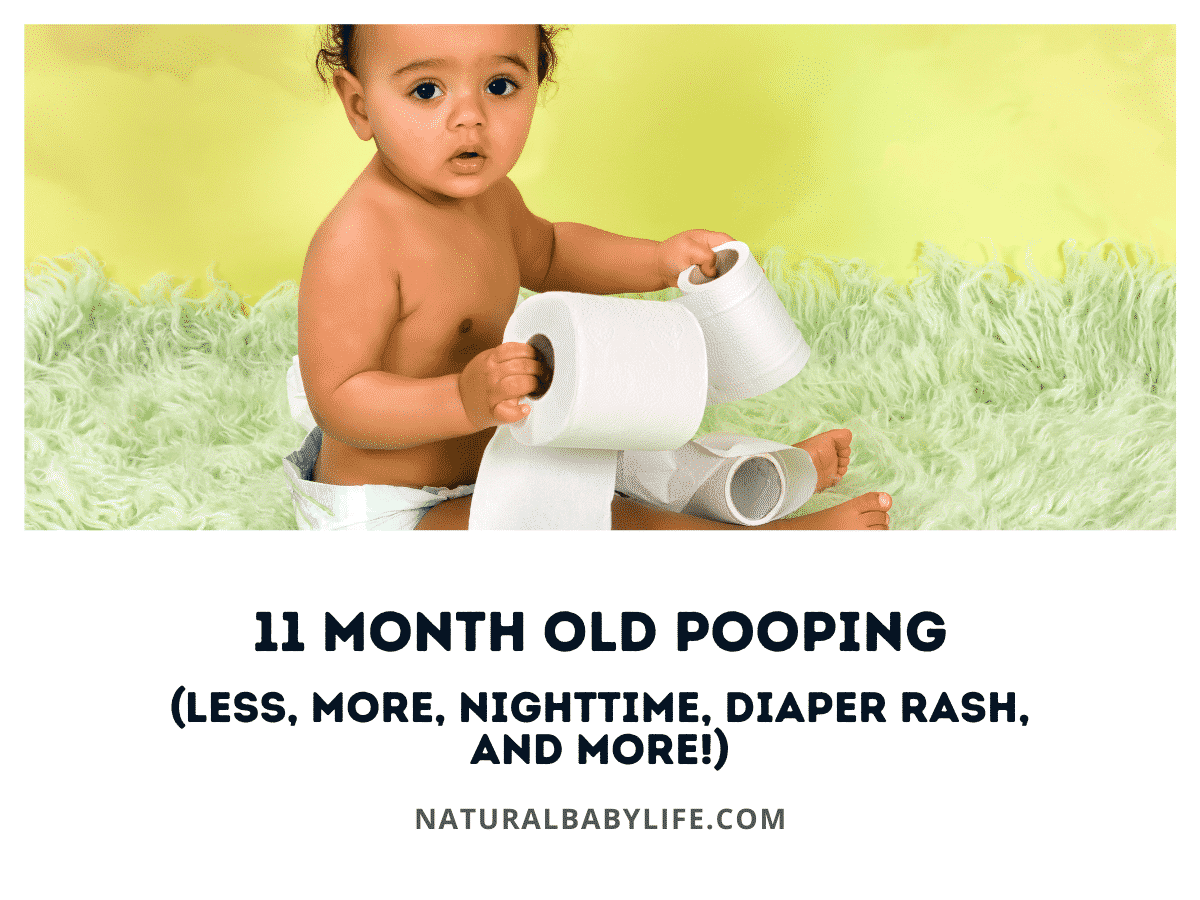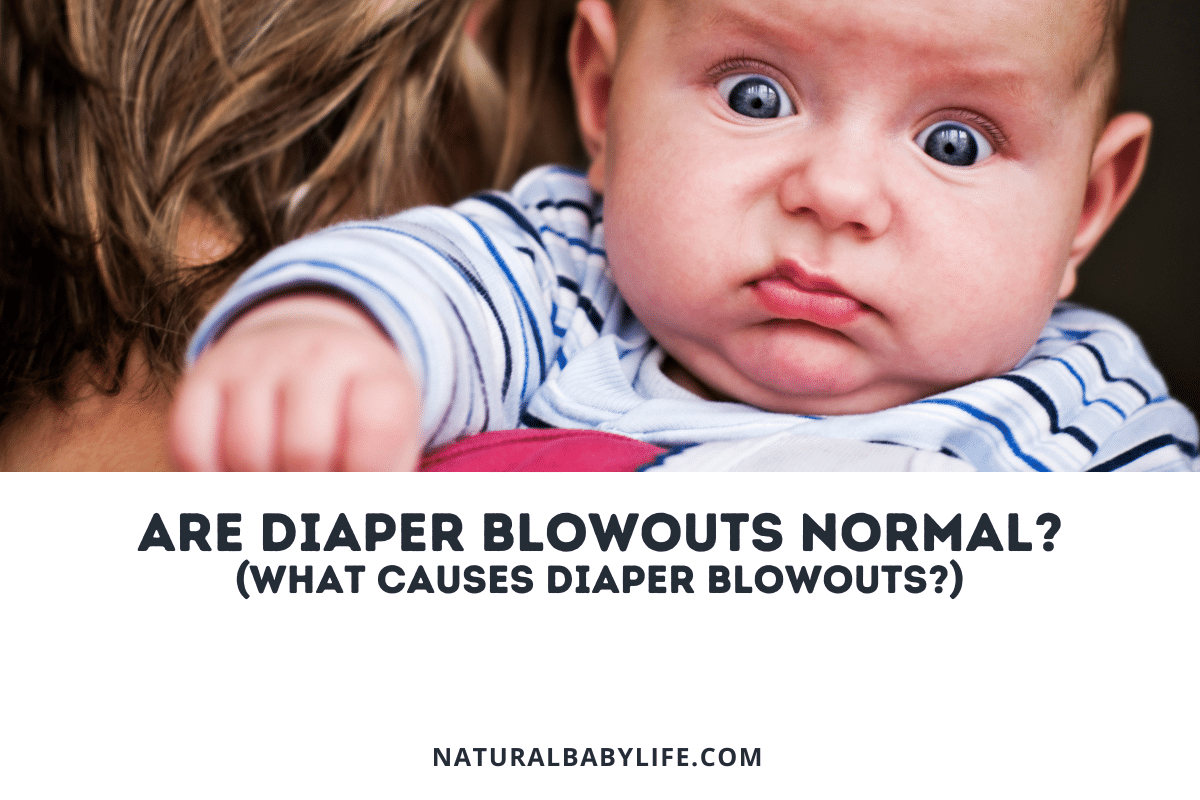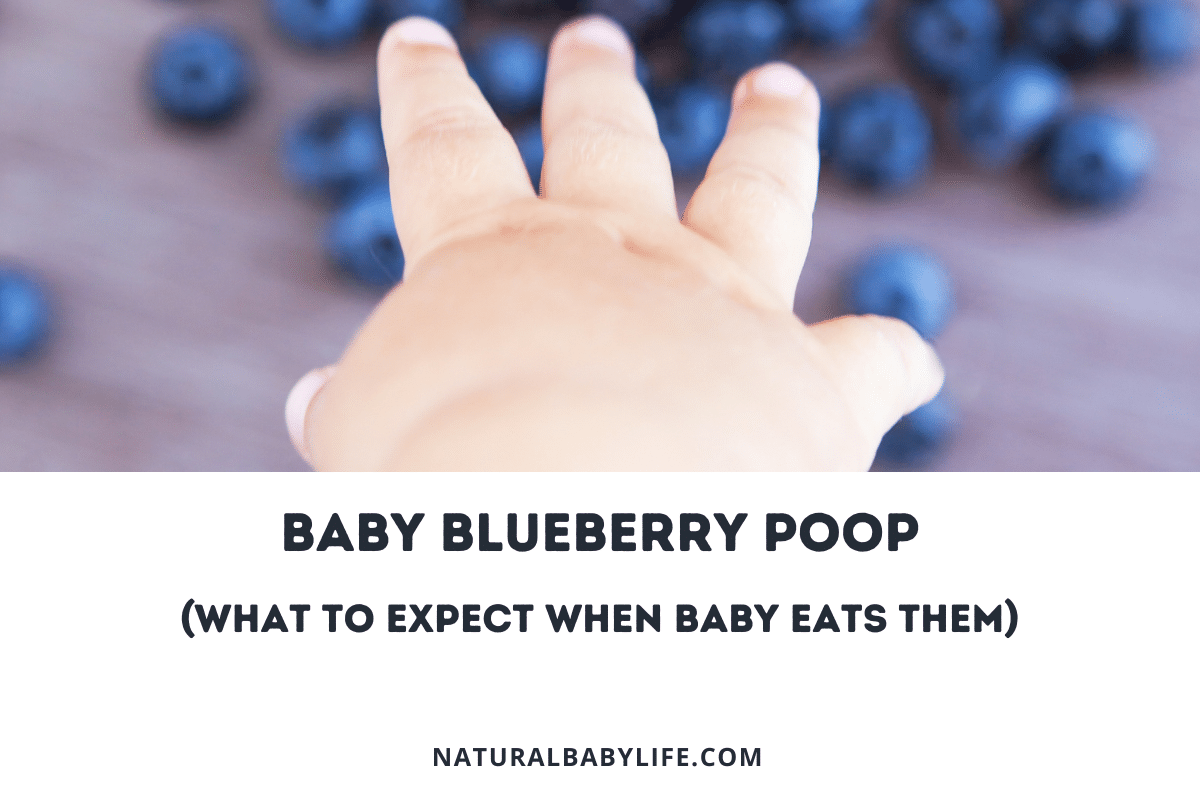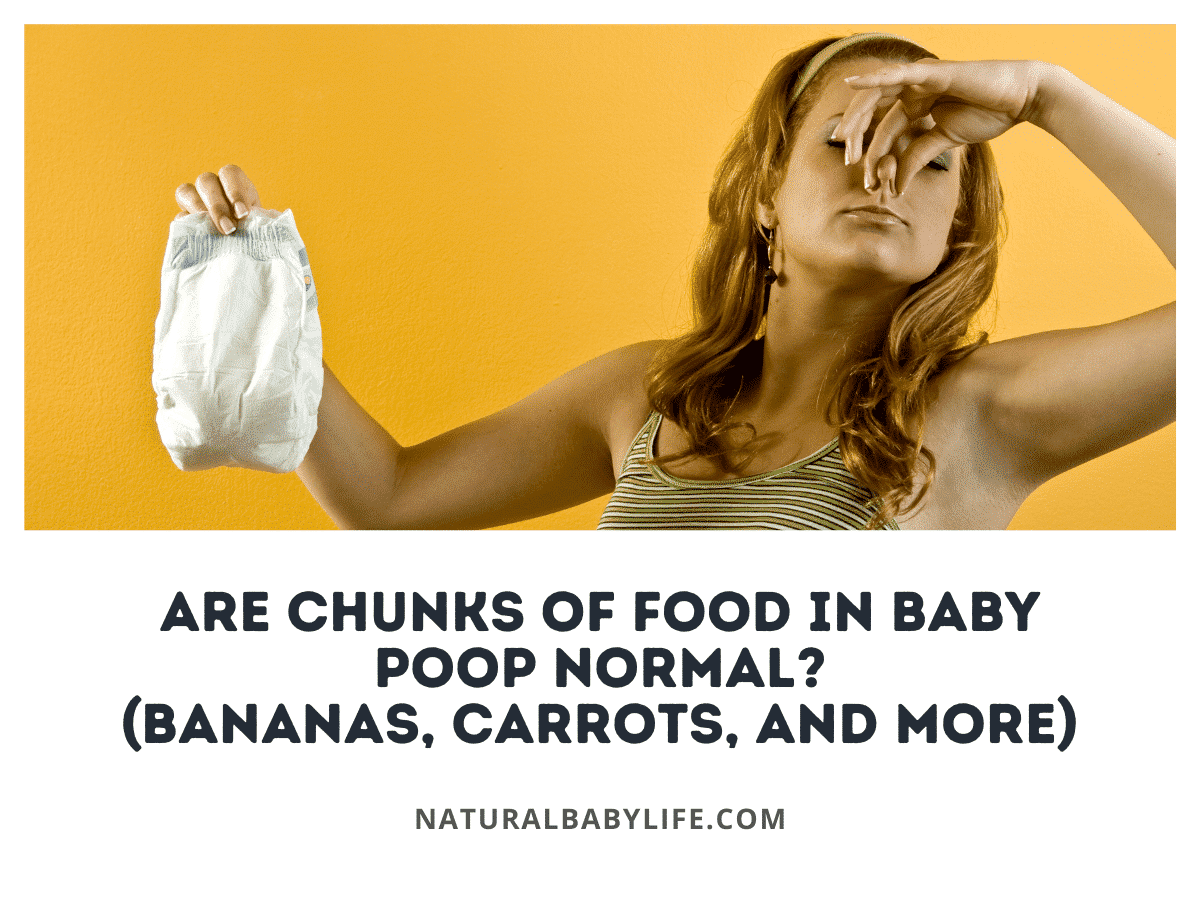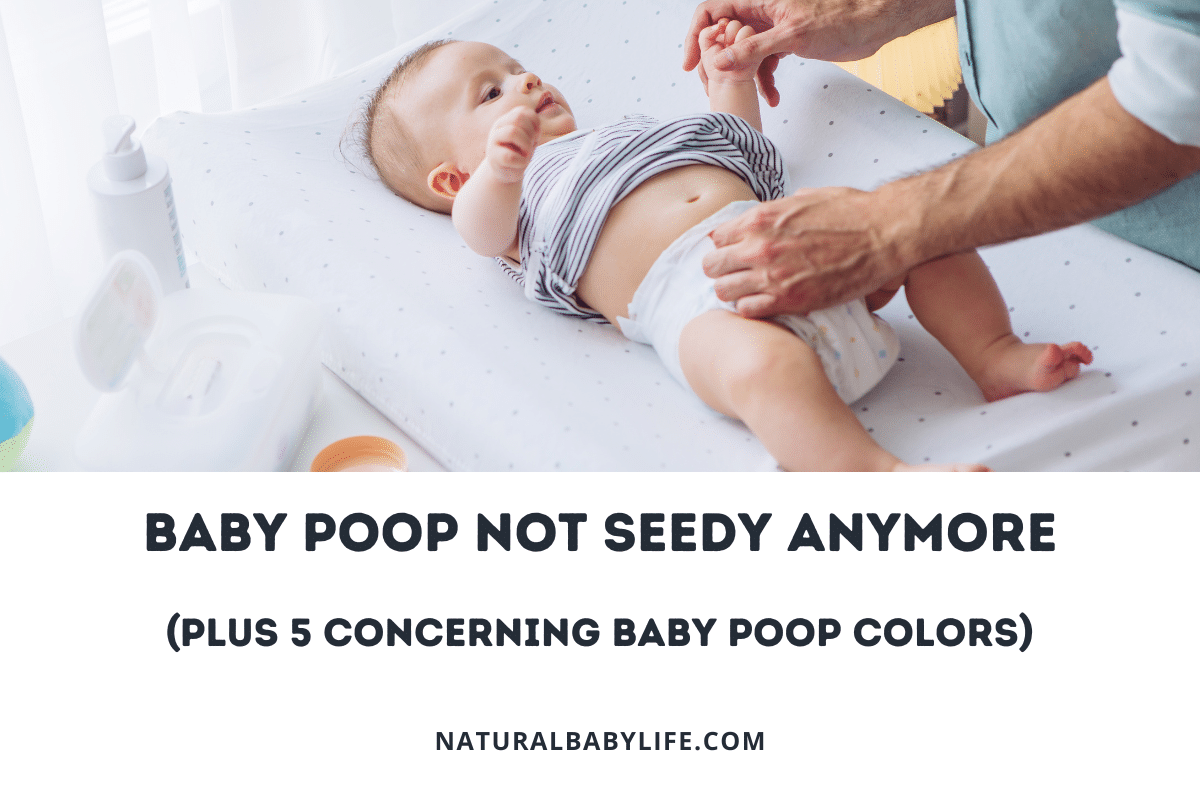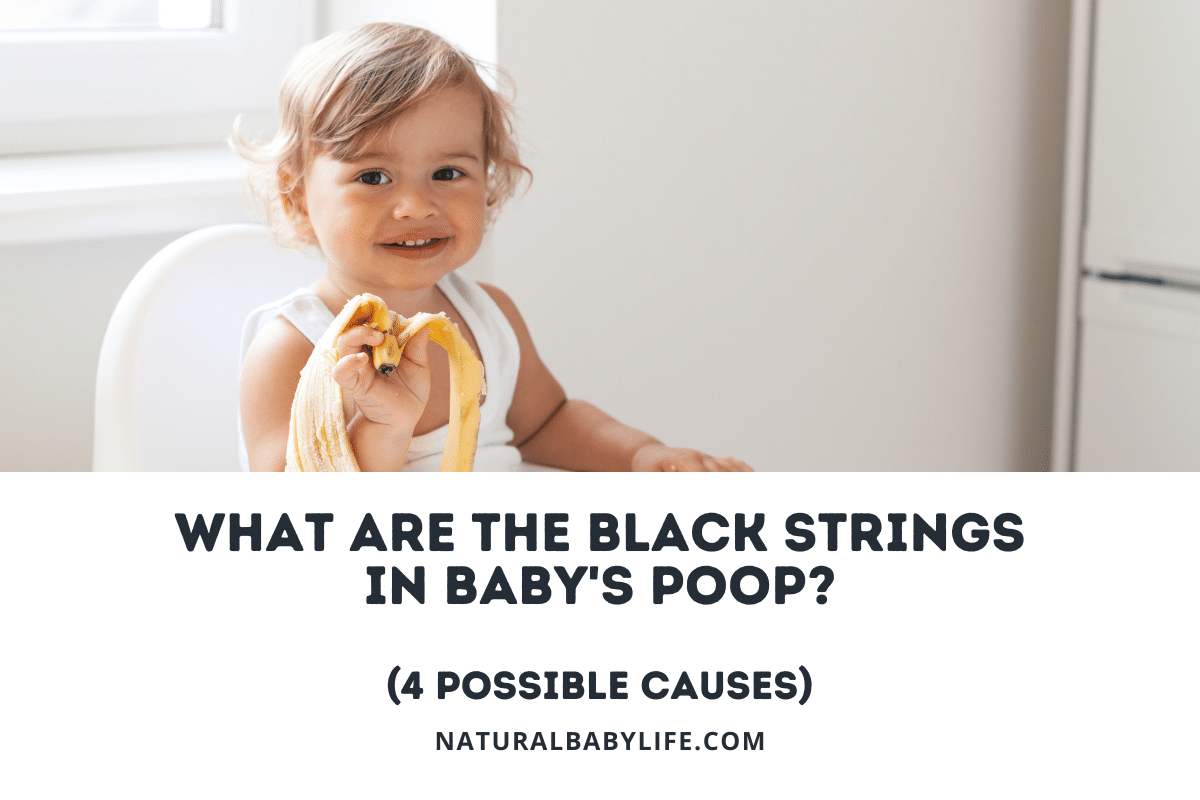In the first year of life, many changes are taking place with your baby. One of those changes is in the frequency, look and smell of your baby’s poop. Should your 11-month-old be pooping less or more? Should the color and consistency of the poop change?
It is not unusual for your baby to poop one to four times a day, or to go a day or two without pooping. It’s not usually a sign for concern if your baby’s poop starting to change in color or consistency as it’s common at this age for a baby’s dietary habits to be changing. As long as they don’t also act sick, everything is probably normal.
Read on to understand your 11-month-olds pooping habits, why they might have diaper rash, and more. You’ll also find out what’s normal and when to call the pediatrician.
Table of Contents
How much should an 11-month old poop?
At 11 months old, any concerns about pooping should be more about consistency than frequency. The frequency can vary widely with your baby’s increased mobility and maturing digestive system.
For an 11-month-old, pooping one to four times daily is not uncommon. Pooping less than once per day is also okay as long as the consistency is soft and your baby isn’t straining or crying. Brown, yellow and green poop are all normal. Red, black or white poop may need attention from your pediatrician.
Breastfed babies tend to poop more frequently than formula-fed babies. As your baby starts eating a variety of solid foods, you can expect some interesting changes with those dirty diapers.
What if my 11-month old is pooping less?
It’s okay for your 11-month-old to poop less than once per day occasionally. However, keep a close eye on the consistency. If it becomes harder than usual it could signal they are constipated.
If your baby hasn’t pooped in a few days or is struggling, they may be constipated. A low fiber diet, dehydration, illness, and some medications can cause constipation.
To add fiber, you can feed your baby pureed peas or prunes. You can also give two to four ounces of 100% fruit juice (apple, pear, or prune) and eliminate bananas for a few days.
Time to worry
Usually, there is nothing to be concerned about with changes in frequency.
If dietary changes don’t provide relief or you notice any of the following, give your pediatrician a call to discuss:
- Your baby poops without meaning to.
- Constipation is combined with fever, weight loss, vomiting, or blood.
- Your baby slows down on food & water intake.
What if my 11-month old is pooping more?
Some 11-month-olds just poop more than others.
As long as the consistency of your baby’s poop isn’t watery, more frequent pooping is likely due to diet. Especially if you’re introducing foods with more fiber like greens. Frequent watery poops or diarrhea may be a result of dietary changes as well. But, it can sometimes mean an infection is present.
Dehydration is a concern if diarrhea persists for more than a couple of days. Contact your pediatrician if you are concerned.
Pooping a lot at night
Pooping frequently at night can be frustrating for parents, particularly if your baby is difficult to get to sleep.
Here is a list of things that may be causing it, and some tips to help everyone get a better night’s sleep:
- Move high fiber foods – Keep a log with foods they are eating and the time. Move high fiber foods from dinner time to earlier in the day.
- Skip the bedtime snack – Feed the last meal for the day a little earlier. Allow time for digestion and relaxation to happen before bedtime.
- Breastfeeding – Notice what foods you eat when night poops happen. Stay away from them before breastfeeding for a few days.
- No liquids for 45 minutes before bed – Liquids ease pooping and sugary drinks can trigger accidents at night.
- Give a warm bath before bedtime – Warm water relaxes your baby and makes it easier to poop. This is why they sometimes poop in the bathtub.
Pooping 6 times a day
Many 11-month-old babies still poop several times a day. It’s not abnormal unless it is accompanied by signs of illness like fever or vomiting.
Diaper rash
Diaper rash can be caused by several things.
Here are some common causes of diaper rash:
- Poopy diapers/diarrhea – Leaving a dirty diaper on the skin too long can cause diaper rash from bacteria.
- Breastfeeding – Your baby could react to something you ate. Keeping a food log for both of you can help identify any foods that your baby may be reacting to. You may want to avoid those near the time you’re breastfeeding.
- Bacterial or yeast infection – Warm, moist areas are easy places for bacteria to flourish. These are secondary skin infections that should be treated by your pediatrician. Your baby can develop these from antibiotics or if you are breastfeeding while you’re on antibiotics.
Things you can do to treat your baby’s diaper rash:
- Change more frequently since stool on the skin can be very irritating.
- Rinse the diaper area well with warm water and pat skin dry at each diaper change.
- Use a barrier ointment like Vaseline or Desitin after cleaning the skin.
- Put the diaper on loosely or use a slightly larger diaper to allow better air circulation.
- Sleep without a diaper whenever a rash is present. Use a plastic sheet under the cloth one to protect the mattress.
11-month old poop consistency
Consistency is the key to understanding if changes in your 11-month-olds poop is normal or if there might be a problem.
Your baby’s poop may have the consistency of:
- Hard (or pellet-like)
- Soft or loose
- Clay-like
- Undigested food
- Watery
Hard or pellets
Poop that is dark brown and comes out in hard pellets usually indicates constipation.
A lack of fluids or insufficient fiber in the diet are common causes of constipation. To bring your baby’s poop back to normal consistency:
- Add fluids and fruit/fruit juice like prunes – Give 100% fruit juice all at once at end of the day. Start with two to four ounces.
- Limit starchy solids – Rice cereal and bananas are binding foods and should be avoided if your 11-month-old is having trouble pooping.
- Massage abdomen – Put lotion on your hands and gently massage to the right and below the belly button on the abdomen to encourage bowels to move.
- Talk to your pediatrician – If constipation continues more than a couple of days after introducing more fluids and fiber, consult your pediatrician.
Soft or loose
Breastfed babies generally have a softer or looser stool than those that are formula-fed.
Your 11-month-old should have soft stools that are similar in consistency to peanut butter. They may also occasionally have loose stools as new foods are introduced.
Clay
A poop that is hard and clay-like is indicative of constipation.
If your baby is straining to pass it or crying when they do, try giving them one half to a full jar of pureed prunes for a couple of days. Remember to stop giving bananas because they have a further binding effect.
Undigested food
It can be pretty gross and sometimes alarming to see chunks of undigested food in your baby’s diaper, but it isn’t usually a cause for alarm.
11-month-olds don’t have many teeth yet, so they don’t chew their food well. Their digestive system is still immature and learning to process the new foods they are eating.
Watery
As long as your baby isn’t acting sick, loose, or watery stools for 3 – 6 days are okay.
Watery poop can be related to changes in diet, food allergies, medicines, viruses, or bacteria. Usually, it can be treated at home and isn’t something to worry about.
The biggest concern is to make sure your baby doesn’t become dehydrated. Check these warning signs to know when to see your pediatrician.
11-month-old poop color
Just like seeing undigested food in your baby’s poop, changes in its color can also be alarming at first. Diet changes, infections, medications, etc. can change your baby’s poop color.
Brown, green or yellow poop are considered normal. Healthy poop is typically brown due to bilirubin that is produced by the liver, which helps break down food.
If your babies poop is black or red/bloody, there may be cause for concern and you should consult your pediatrician.
Black
Black poop can seem alarming, however many times if you smear it with a tissue, you’ll see it’s actually a dark green.
Some vitamins and antacids contain compounds that can cause black poop. If it’s black, sticky, and tarry, it could indicate bleeding in the upper GI tract and should be discussed with your pediatrician as soon as possible.
Yellow
Yellow poop is considered normal for both bottle and breastfed babies. Breastfed babies tend to have poop that is brighter yellow and can be seedy.
Green
Green poop, while disturbing to see, is also mostly normal.
As 11-month-olds start eating more green vegetables, their poop can turn green because it moves through the digestive system too quickly at first. Bright green poop can also indicate a tummy bug, and it’s usually accompanied by diarrhea.
Some formulas and supplements like iron may also cause poop to be green.
Red or bloody
90% of red poops are not caused by blood.
Red poop can be caused by coloring from foods like Jello, Kool-aid, and beets. Or, it can be caused by medicines like Amoxicillin. A little blood in the diaper can usually be attributed to small anal tears caused by straining while constipated.
You should call your pediatrician if:
- Poop is light gray or white and occurs more than 2 times – contact your pediatrician.
- Strange color persists longer than 48 hrs after suspected food is stopped.
- Your baby looks or acts very sick.
11-month old poop smells
Poop smell is caused by the time it spends in the intestines. The longer it takes for poop to pass through, the more bacteria build up and cause unpleasant odors.
When your baby is adapting to new foods, smelly poop is common. If you notice signs of illness like vomiting or fever, contact your pediatrician.
Your baby’s poop may not always smell like, well, poop, it may also smell:
- Fishy
- Like vinegar
- Sweet
- Sour
Fish
If your baby’s poop smells fishy, it may be a cause for concern.
Poop that smells like fish can be caused by infections like cholera, which is caused by consuming contaminated water or food, typically in developing countries.
Other symptoms of Cholera are acute watery diarrhea and severe dehydration.
Vinegar
A vinegar smell emanating from your little one’s poop is typically a sign of lactose overload.
For breastfed babies, this can be caused by the mom switching breasts too soon, leading the baby to get disproportionate quantities of low-fat foremilk and high-fat hindmilk. Moms should block-feed for a few days to correct this imbalance by only switching breasts every 4 hours.
Bottle-fed babies can also experience this when the nipple flow rate is too fast.
Sweet
Breastfed baby poop has little to no smell, but can sometimes smell sweet.
It can last until the baby begins eating solid food.
Sour
Food allergies and lactose intolerance can cause sour-smelling poop. Cutting back on dairy products can help.
Signs of an allergy or intolerance include loose stools, stomach bloating, and abdominal cramping, especially after eating dairy products.

